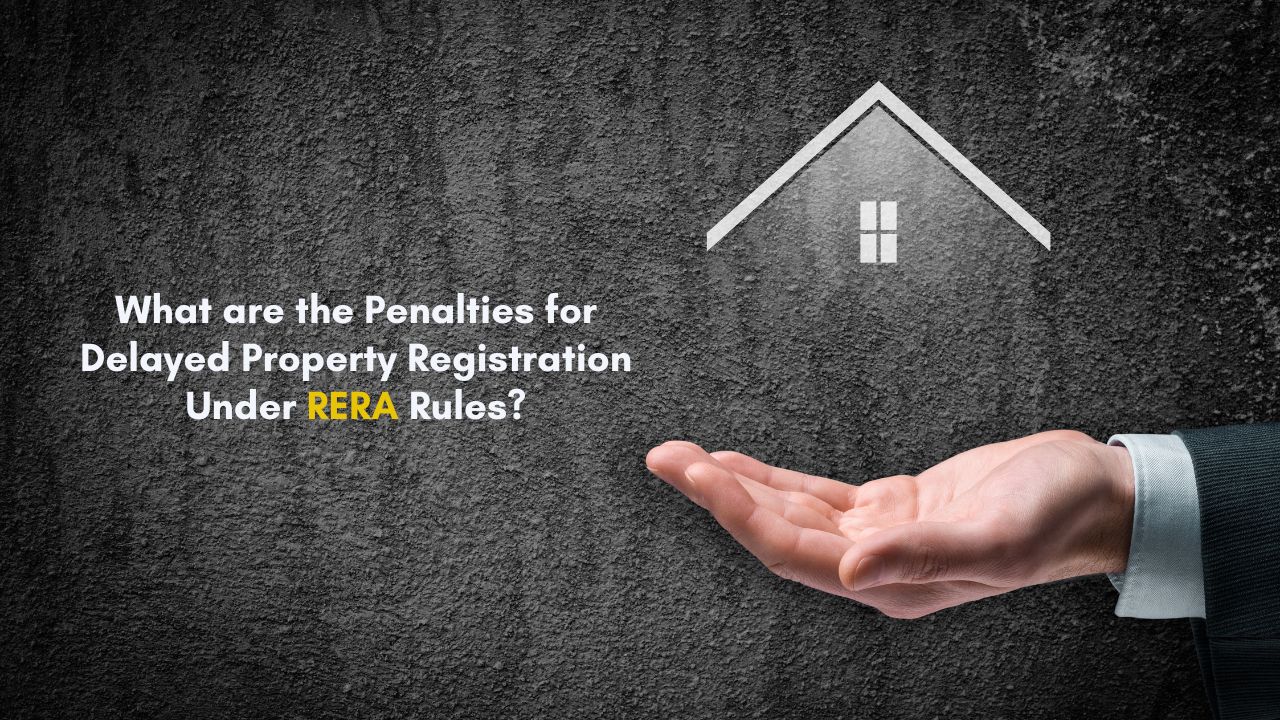Introduction
The Real Estate (Regulation and Development) Act, commonly referred to as RERA, was introduced to enhance transparency and accountability in the real estate sector. Among its various provisions, property registration is a crucial requirement for both developers and property buyers. Delays in complying with property registration under RERA can lead to serious consequences, including financial penalties and legal actions. Here, we explore the penalties, the importance of property registration, and how stakeholders can ensure compliance.
Importance of Property Registration Under RERA
Property registration is a mandatory legal process that establishes the ownership of property in public records. Under RERA, property registration ensures that the rights and interests of homebuyers and developers are protected. Advance property registration is particularly vital in preventing disputes and delays in ownership transfer, fostering trust in the real estate market.
Lease registration and lease deed registration are also integral components of property registration, especially for rental properties. A registered lease agreement legally binds the parties and provides clarity on terms, reducing the chances of disputes. Delays in registering these documents can result in penalties and compromise the legal standing of the lease.
Penalties for Delayed Property Registration
Failure to adhere to RERA’s property registration guidelines attracts significant penalties. The Act imposes fines on developers who fail to register their projects with the regulatory authority before advertising or selling properties. These penalties are not limited to developers; buyers who delay registering their properties can also face legal and financial repercussions.
In addition to monetary fines, delayed registration can lead to legal disputes, especially if the delay results in a violation of terms agreed upon between the buyer and seller. In some cases, buyers may be unable to claim ownership, which can create long-term financial and legal challenges.
For lease registration, delayed lease deed registration may render the agreement invalid, potentially leading to eviction or loss of legal recourse in case of disputes. Ensuring timely registration is, therefore, critical for safeguarding interests.
Steps to Avoid Delayed Property Registration
Timely property registration involves a clear understanding of the RERA complaint procedure. This process allows buyers and developers to address grievances related to delays in registration effectively. By filing a RERA complaint, affected parties can seek redressal for any inconvenience caused due to non-compliance by the other party.
Advance property registration is one way to prevent delays. By proactively completing the registration process, buyers and developers can mitigate risks associated with non-compliance. This approach is particularly beneficial in high-demand regions where administrative delays are common.
Filing a RERA Complaint for Registration Delays
The RERA complaint procedure is designed to handle issues such as delayed property registration. Buyers can file a complaint against developers who fail to meet registration deadlines, while developers can seek legal recourse if buyers delay their part of the process.
The complaint process involves submitting a detailed account of the issue to the state’s RERA authority. After reviewing the case, the authority can impose penalties or order corrective actions. This process ensures accountability and promotes adherence to the law.
Legal and Financial Implications of Non-Compliance
Delayed property registration can lead to significant financial losses. Buyers may incur additional costs such as penalty fees or interest charges for delayed payments. Developers may face hefty fines, which can affect their reputation and financial stability. Non-compliance can also result in the cancellation of project approvals, further delaying the project.
Lease registration delays can lead to similar consequences. Without a registered lease deed, landlords may face challenges in enforcing the terms of the lease, while tenants may lose their rights to occupy the property. Legal disputes arising from such delays often lead to time-consuming and costly litigation.
Benefits of Timely Property Registration
Completing property registration on time has multiple benefits. It ensures legal ownership, provides access to government records, and prevents potential disputes. Buyers gain peace of mind knowing their investment is legally protected, while developers build credibility and trust among their customers.
Timely lease deed registration secures the interests of both landlords and tenants. By registering the lease, both parties can avoid ambiguities and establish clear terms and conditions. This process also helps in compliance with local laws and regulations.
How Technology Can Assist in Property Registration
Technological advancements have simplified the property registration process. Online portals allow stakeholders to initiate advance property registration and complete the necessary formalities from the comfort of their homes. These platforms also facilitate lease deed registration, reducing the chances of delays caused by administrative bottlenecks.
Many state RERA authorities have implemented online systems for filing RERA complaints. These systems streamline the RERA complaint procedure, enabling stakeholders to address grievances quickly and efficiently. Leveraging technology ensures smoother compliance and enhances the overall experience for buyers and developers.
Conclusion
Property registration under RERA is a fundamental requirement that safeguards the interests of all stakeholders in the real estate sector. Delays in registration can lead to severe penalties, financial losses, and legal complications. By understanding the importance of advance property registration, lease registration, and the RERA complaint procedure, stakeholders can ensure compliance and mitigate risks. Adopting proactive measures and leveraging technology can further simplify the process, promoting a more transparent and efficient real estate market.

